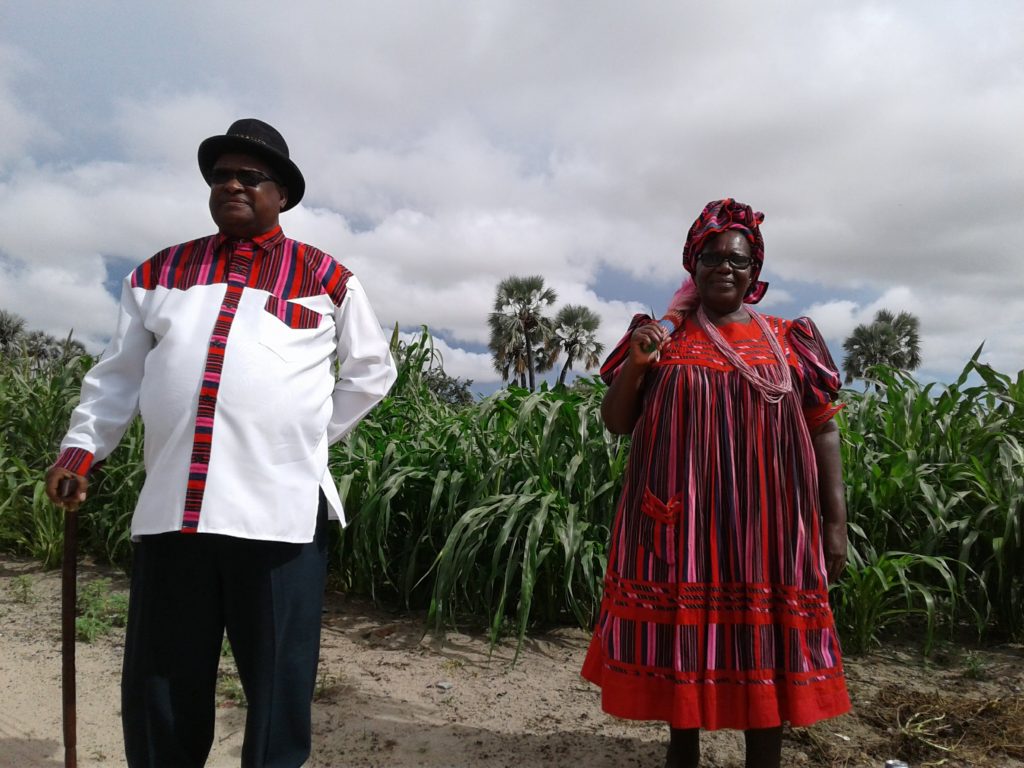The royal palace of Uukwambi sprawls on a sandy expanse far from the main road, guarded by verdant palm stands and sorghum fields. Fences made of tree trunks fortify the complex, inside which several modern structures house the living quarters and administrative offices of King and Queen Iipumbu and their court. The royal palace serves as the setting for infinite administrative and domestic activities, including traditional methods of food preparation for daily living and special occasions, crop cultivation, and law and order proceedings. Official visitors to the palace are welcomed by singing and dancing troubadours in brightly colored shirts and hats with ostrich plumes; the fitness and nimbleness of the dancers is particularly striking, considering their status as elder members of the community. The ladies ululate while the men stomp on the sand to the beat of the song. Praise and fellowship.
Descending from anti-colonial Namibian hero Iipumbu yaTshirongo, who fought early-20th century South African domination fiercely, King Iipumbu represents and manages the affairs for the Kwambi people within the modern Namibian governmental structure. Officially called “head chief,” as contemporary English nomenclature reserves “king” for national heads of state, the king nonetheless retains the respect and honor due a monarch. While the Uukwambi Kingdom has a traditional geographic range within the region of Ovamboland, in the far north of Namibia, King Iipumbu represents all of the Kwambi people, no matter where they are physically located. Tying the kingdom more tightly to the modern government is the royal daughter Lucia Iipumbu, who serves as Deputy Minister of Economic and National Planning in Windhoek. Survival and adaptation.
At night, in honor of special guests, the royal storyteller regales the court with tales of heroes fierce and heroines fair, of lessons learned, of communal history, of stories told over and over again, each time with new and different references, inflections, and understandings. The ceremonial fire lights the faces of the storyteller, the guests, the advisers, the singers, the dancers, the royal family members, and the monarchs, all engaged in collective remembering. The language may not be understood to outsiders, but the energy is felt by all in attendance. History. Legacy.
Have you ever visited a traditional kingdom in Namibia, or anywhere else in Africa?


Hiya Ernest.
No, Ive not but sounds fun.
I need to see more photo of the Kingdom.
Thanks for sharing this.